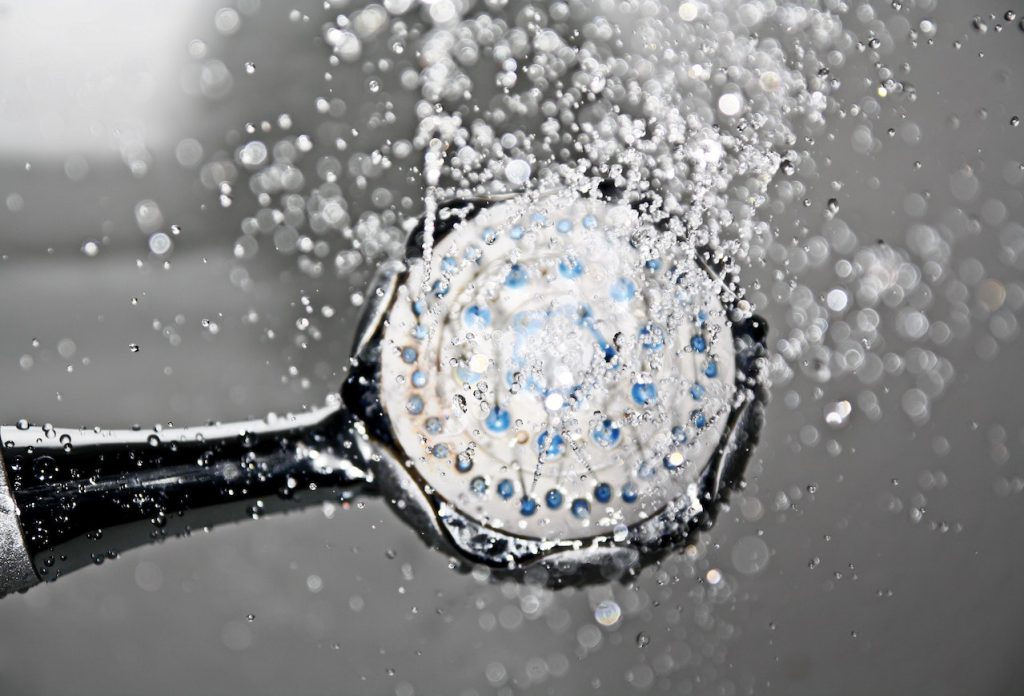Mineral buildup in plumbing systems is a common issue that affects many households and businesses. Over time, minerals like calcium and magnesium, commonly found in hard water, accumulate inside pipes, leading to a variety of problems. If left unaddressed, this buildup can significantly impact the efficiency and longevity of your plumbing system. Recognizing the signs of mineral buildup early can save you from costly repairs and replacements. Here are ten signs that it’s time to address mineral buildup in your pipes.
Table of Contents
Toggle1. Decreased Water Pressure
One of the most noticeable signs of mineral buildup is a reduction in water pressure. When minerals accumulate inside your pipes, they narrow the passage through which water flows, resulting in decreased water pressure. This is particularly evident when you use multiple faucets simultaneously or when the buildup is severe.
Understanding Water Pressure and Buildup
Water pressure is the force exerted by the water in your plumbing system. It’s measured in pounds per square inch (PSI). The ideal water pressure for most homes is between 40 to 60 PSI. Mineral buildup can drastically reduce this pressure, making it difficult to perform everyday tasks such as showering, washing dishes, or using appliances that rely on a steady flow of water.
Common Culprits
- Calcium Carbonate: This is the most common mineral found in hard water. It tends to accumulate in pipes and on fixtures, forming a hard, chalky residue.
- Magnesium: Often found alongside calcium, magnesium can contribute to the formation of scale within your pipes.
2. Unusual Noises in Plumbing
Hearing strange noises such as banging, clanging, or gurgling from your pipes can be unsettling. These sounds often indicate that there is a restriction or blockage within the plumbing system, commonly caused by mineral buildup.
Types of Noises
- Banging or Clanging: Often referred to as “water hammer,” this noise occurs when water flow is suddenly stopped or altered, causing pipes to move and bang against each other or surrounding structures.
- Gurgling: This noise usually indicates that air is trapped in the pipes, a sign that water flow is being obstructed by mineral deposits.
Potential Consequences
Ignoring these noises can lead to more severe problems, such as pipe bursts or leaks, which can cause significant damage to your property and require expensive repairs.
3. Discolored Water
If you notice that your water has a brown or yellow tint, it’s a clear sign that there may be mineral buildup in your pipes. Discolored water can also be caused by rust, which is often linked to mineral deposits in the plumbing system.
Causes of Discoloration
- Iron and Manganese: These minerals can cause water to appear brown, yellow, or even reddish. They are commonly found in well water and can build up inside pipes over time.
- Galvanized Pipes: Older homes with galvanized steel pipes are particularly prone to rust and mineral buildup, leading to discolored water.
Health Concerns
While discolored water is not always harmful, it can be unappealing and may contain elevated levels of minerals that can affect the taste and quality of your water. In some cases, it can also indicate the presence of harmful contaminants.
4. Scale Buildup on Fixtures
Visible scale buildup on faucets, showerheads, and other fixtures is a clear indicator that you have hard water and that minerals are accumulating in your pipes. This buildup can also affect the performance and lifespan of your fixtures.
Common Areas Affected
- Kitchen and Bathroom Faucets: White, chalky deposits around the base of faucets or on the aerators are common signs of scale buildup.
- Showerheads: Mineral deposits can clog the tiny holes in showerheads, reducing water flow and pressure.
- Appliances: Dishwashers, washing machines, and water heaters are also susceptible to scale buildup, which can reduce their efficiency and increase energy consumption.
Prevention and Maintenance
Regularly cleaning your fixtures with vinegar or a descaling agent can help remove buildup and extend the life of your fixtures. Installing a water softener can also reduce the amount of minerals in your water, preventing future buildup.
5. Frequent Clogging
If you find yourself dealing with frequent clogs in your plumbing system, it may be due to mineral buildup. Minerals can accumulate and form hard, solid masses that obstruct the flow of water and waste through your pipes.
Symptoms of Mineral-Related Clogs
- Slow Drains: Water draining slowly from sinks, bathtubs, or showers can indicate that there is a buildup of minerals and other debris in the pipes.
- Recurring Clogs: If you experience clogs that keep coming back despite your best efforts to clear them, it may be a sign that mineral deposits are the underlying cause.
Addressing the Issue
Using chemical drain cleaners can provide a temporary fix, but they often fail to address the root cause of the problem. A professional plumber can use specialized tools such as a plumbing snake or hydro jetting to remove mineral buildup and restore proper flow.
6. Inefficient Water Heating
Mineral buildup can significantly impact the efficiency of your water heater. Over time, minerals settle at the bottom of the tank, forming a layer of sediment that acts as an insulator, making it harder for the heating element to warm the water.
Signs of Sediment Buildup in Water Heaters
- Longer Heating Times: If it takes longer than usual for your water to heat up, it could be due to sediment buildup.
- Unusual Noises: Popping or rumbling sounds coming from the water heater are often caused by water boiling beneath the layer of sediment.
- Inconsistent Water Temperature: Fluctuations in water temperature or running out of hot water quickly can indicate that your water heater is struggling to function efficiently.
Maintenance Tips
Regularly flushing your water heater can help remove sediment and improve efficiency. It’s recommended to do this at least once a year or more frequently if you have particularly hard water.
7. Increased Water Bills
A sudden spike in your water bills without a corresponding increase in usage can be a sign of mineral buildup in your pipes. Buildup can cause leaks and reduce the efficiency of your plumbing system, leading to higher water consumption and costs.
Identifying the Source
- Leaky Pipes: Mineral buildup can cause corrosion and weaken pipes, leading to leaks that waste water and increase your bills.
- Inefficient Fixtures: Scale buildup on faucets, showerheads, and appliances can reduce their efficiency, causing you to use more water to achieve the same results.
Cost-Saving Measures
Addressing mineral buildup promptly can help reduce your water bills. Regular maintenance, installing a water softener, and repairing leaks can all contribute to more efficient water usage and lower costs.
8. Shortened Appliance Lifespan
Mineral buildup not only affects your pipes and fixtures but also significantly impacts the lifespan of your water-using appliances. Appliances such as dishwashers, washing machines, and water heaters are particularly vulnerable to damage from hard water.
Effects on Appliances
- Dishwashers and Washing Machines: Mineral deposits can clog the spray arms, filters, and valves, reducing efficiency and leading to more frequent breakdowns.
- Water Heaters: As mentioned earlier, sediment buildup in water heaters can reduce heating efficiency and lead to premature failure of the heating element.
- Coffee Makers and Kettles: These small appliances can also suffer from scale buildup, affecting their performance and longevity.
Extending Appliance Lifespan
Using a water softener can help reduce mineral buildup and extend the lifespan of your appliances. Regular descaling and maintenance are also crucial to keeping them running efficiently.
9. Dry Skin and Hair
Hard water can have noticeable effects on your skin and hair. The high mineral content can leave a residue that makes it difficult for soap and shampoo to lather and rinse off properly, leading to dryness and irritation.
Common Symptoms
- Dry, Itchy Skin: Minerals in hard water can strip your skin of its natural oils, leading to dryness, itching, and irritation.
- Dull, Lifeless Hair: Hard water can make hair feel dry, brittle, and difficult to manage. It can also cause buildup on the scalp, leading to dandruff and other issues.
Solutions
Installing a water softener or using a showerhead filter can help reduce the effects of hard water on your skin and hair. Using moisturizing products and clarifying shampoos can also help mitigate these issues.
10. Visible Corrosion on Pipes
Finally, visible signs of corrosion on your pipes can indicate that mineral buildup is causing damage to your plumbing system. Corrosion can weaken pipes and lead to leaks or bursts, which can cause significant damage to your property.
Signs of Corrosion
- Green or Blue Stains: Copper pipes can develop green or blue stains due to corrosion, often caused by acidic water or mineral buildup.
- Rusty Pipes: Galvanized steel pipes can rust over time, leading to brown or orange discoloration and weakened pipe walls.
- Leaky Pipes: Corrosion can cause small leaks that may go unnoticed until they become more severe.
Preventing Corrosion
Regular inspections and maintenance can help identify and address corrosion early. Using a water softener can also reduce the risk of mineral buildup and corrosion in your pipes.
Conclusion
Addressing mineral buildup in your pipes is crucial to maintaining the efficiency and longevity of your plumbing system. Recognizing the signs early can help you take proactive measures to prevent costly repairs and replacements. Regular maintenance, installing a water softener, and seeking professional assistance when needed are all effective strategies for managing mineral buildup and ensuring the smooth operation of your plumbing system.
Experience Excellence in Mineral Buildup Solutions with Garcia Plumbing and Home Restoration!
We understand the frustrations homeowners face when dealing with mineral buildup in their plumbing systems. Our dedicated team of licensed experts leads the way in providing exceptional mineral buildup solutions that ensure reliability and efficiency.
Beyond just plumbing issues, Garcia Plumbing and Home Restoration offers comprehensive home maintenance solutions. Our reputation in Contra Costa County is built on unwavering quality, unmatched expertise, and the trust of numerous satisfied clients. Don’t compromise when it comes to your home’s functionality and cleanliness. Contact us today for outstanding mineral buildup service and embrace a worry-free plumbing future!




